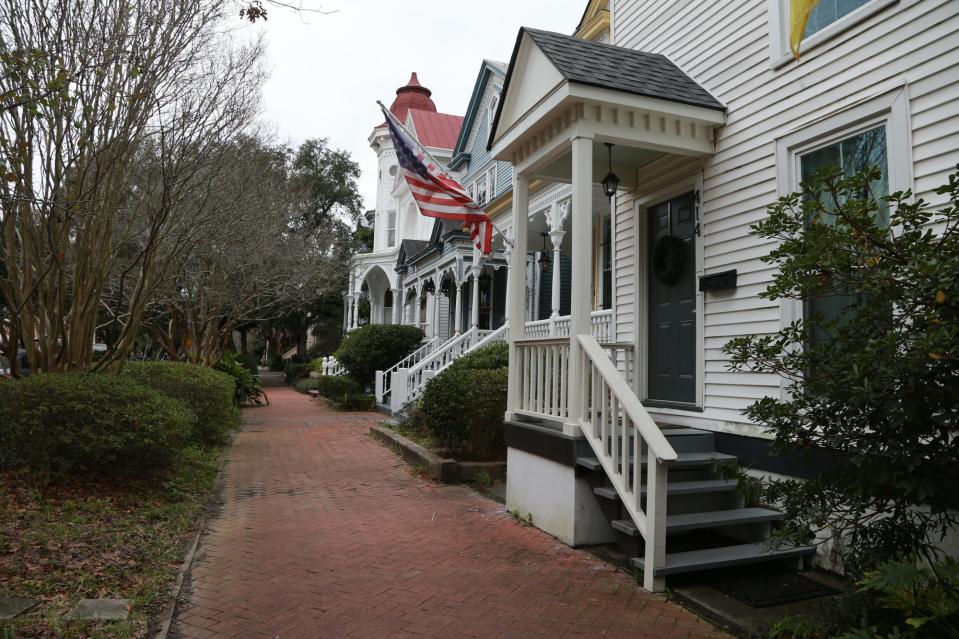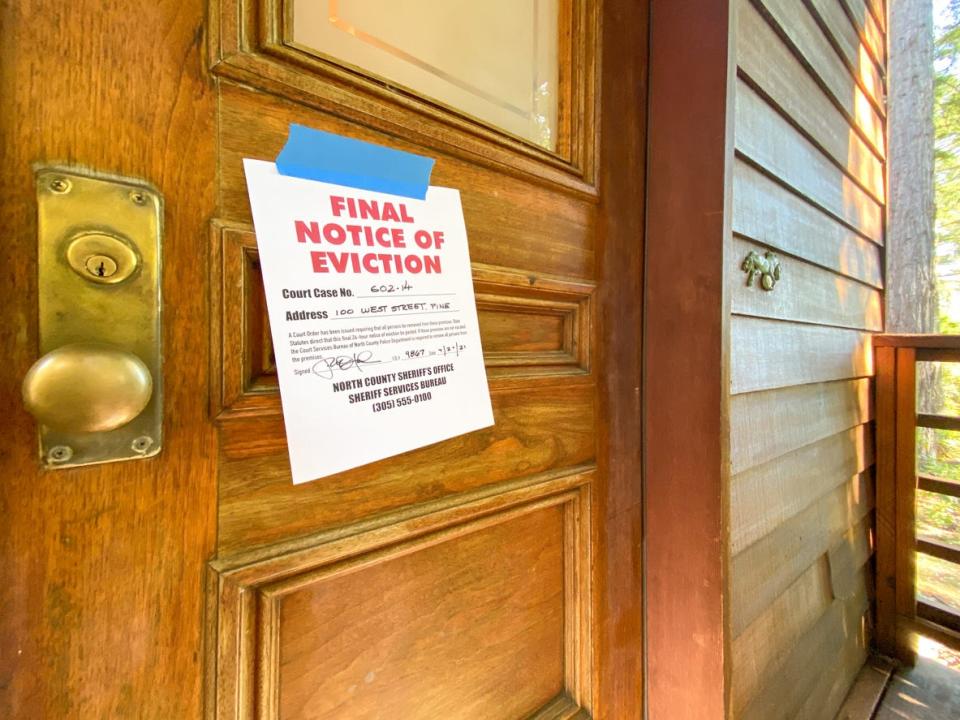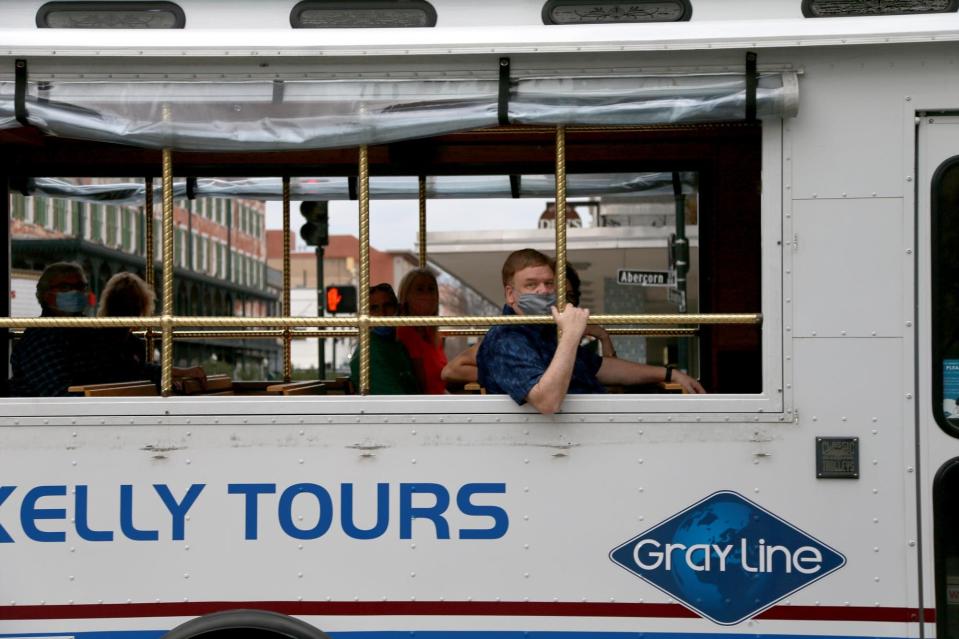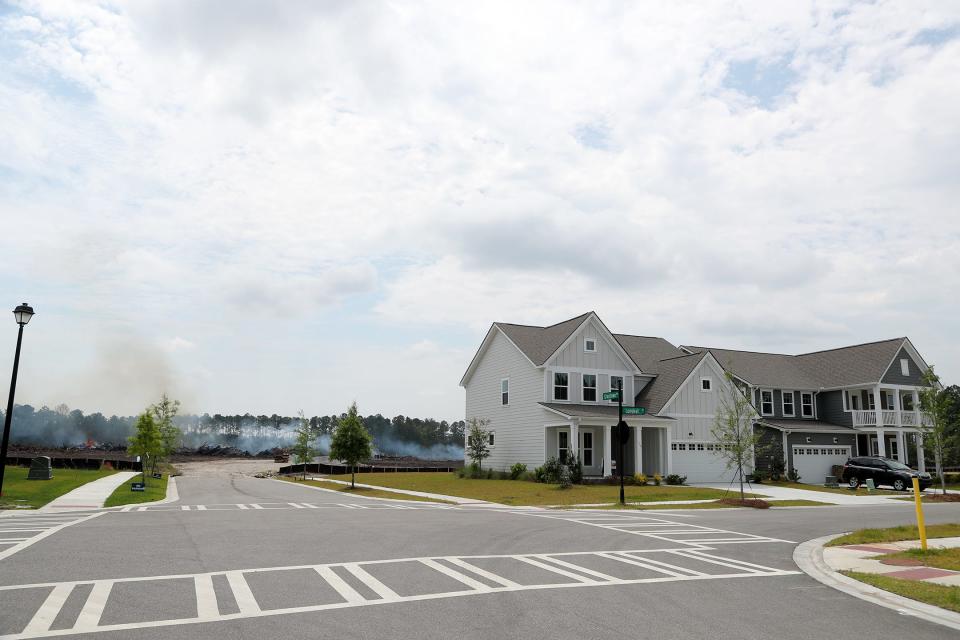First City Progress: Evictions still high in post-COVID housing market
This story is part of First City Progress, a weekly series looking at development in Savannah and the Coastal Empire. If there are projects you're curious about, email Adam Van Brimmer at abrimmer@savannahnow.com and Amy Condon at acondon@gannett.com.
Like many cities in the Southeast, Savannah is a hub for development and population growth. Since 2010, Chatham County's population has grown by 13.6%, according to the U.S. Census.
And while that growth has helped, in part, grow the region's economy with more jobs, more housing and more business ventures, it's also created an inequitable housing market — low-income renters are getting pushed further away from the job and resources in Savannah's core neighborhoods due to a rise in tourism and the influx of new residents, who are often moving from cities where pay is much higher than in Savannah.
Individuals from cities such as Chicago or New York have more buying power in a city like Savannah, where home prices are affordable compared to the national average. But, the impact of that has meant the market has risen to meet the wealth of Savannah's newest residents, pricing many long-term middle- and low-income folks out of desirable neighborhoods. Since 2019, home sale prices have increased 28%, according to Redfin, and properties downtown have nearly doubled in that same timeframe.
Tourism is one of the biggest drivers of the market, however. The popularity of short-term vacation rentals such as Airbnb and VRBO have flooded the residential markets, taking properties out of the long-term rental market and converting them to places for tourists. And while the city of Savannah has taken strides to curb the use of STRVs in the city, they're still impacting prices.
Other factors are at play, including stagnant wage growth, record business investments and nationwide inflation, so let's take a look "by the numbers" at how the Savannah housing market is coping in the post-COVID reality:

More: More carriage houses, garage apartments and in-law suites. Savannah loosens zoning law.
Evictions in Chatham County, GA
For two years, a federal moratorium on evictions kept those struggling from the economic impact of COVID-19 in their homes. The aftermath of that ban led to thousands of eviction notices in Chatham County, where evictions have historically ranked above the national average, according to data compiled by Princeton University's Eviction Lab.
The trend has continued into this year, according to data from Chatham County Magistrate Court.
Last year, 8,935 dispossessory notices were filed with the court — that's about 15% of renter-occupied units in the county, according to U.S. Census estimates for 2022.
As of June 20, 4,549 evictions have been filed in Chatham County. If the pace remains the same, that means Chatham County is on track for 9,710 evictions in 2023.
Evictions are not always caused by a tenant's lack of payment, although that is the No. 1 reason for evictions. Evictions are legally allowed when the tenant breaks the lease, the rental period ends or the tenant damages the property. In Georgia, an eviction technically stays on a record for seven years, but can be found via background check for far longer than that.

'The need is great': Savannah's Section 8 waitlist is years-long, federal relief can help
Average rent in Savannah outpacing wage growth
As of June 2023, the average rent in Savannah was $1,604 a month, according to Rent Café, and the average unit size was 900 square feet. That's an average rental cost of $1.78 per square foot.
Rent prices in Savannah have risen 50% since 2019 — outpacing wage growth of about 31% during that same timeframe.
Chatham County is slightly more affordable, according to Rent Café. Average rent this month sat around $1,306. To afford an apartment at this price without being rent burdened (more than 30% of take-home pay on rent), then a household would need to earn about $57,000 a year.
To afford Savannah's average rent, the tenant would need to make $69,000 a year.
Wages far below national average, growing slowly to meet cost of living increases
As of late 2022, the average worker in Savannah earned $60,580, according to the Savannah Economic Development Authority. This means the average Savannahian cannot afford the average rental unit on a sole income.
Wages have grown in the past decade from about $40,000 annual salary, according to the Bureau of Labor Statistics.
Before the pandemic, in late 2019, the average worker earned $46,300 a year.
But it's not the average worker who typically suffers during a housing crisis — it's those earning below-average income, particularly for those who are on fixed income like social security or long-term disability. The result is a homelessness crisis. This year, more than 700 people were counted during the Chatham-Savannah Authority for the Homeless' Point in Time count — that's 200 more people than were counted last year, according to the agency.
First City Progress: Savannah rent stabilizes, but still unaffordable for most

Home sales, construction have cooled, but market still hot
There are more than 2,000 residential permits issued in Savannah alone. In the county, more than 7,000 residential permits have been issued the past few years, but only 396 of them have been for single-family home construction.
But, with the announcements of projects like Heartwood in Bryan County and New Hampstead in west Chatham, more single-family homes are in the pipeline — or at least they've been approved for construction.

Property transfers: Showcase Chatham Crescent homes selling for seven-figure prices
The average home sold in the Savannah area for $330,945 last month, according to Zillow. That price is up 10% from May 2022 and a third higher than the average sale price in 2019.
The average listing price in Chatham County is $569,000, according to Georgia Multi-Listing Service. But, according to local real estate broker Staci Donegan, Savannah is still a seasonal market, meaning prices tick up in the summer.
The threat of recession and climbing mortgage rates have cooled the local housing market somewhat, but with thousands of jobs in the pipeline from employers like Hyundai and Gulfstream, the need for housing is only going to worsen over the next few years.
This article originally appeared on Savannah Morning News: Savannah housing by the numbers: Evictions, average rent and population

